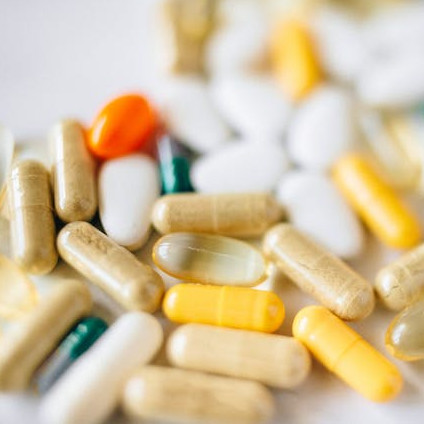
4 Medications That Can Help People Stop Drinking
Medications like Naltrexone, Acamprosate, Disulfiram, and Topiramate can contribute to overcoming alcohol dependence. Understand their unique mechanisms, usage guidelines, and potential side effects, and learn how these medications, when part of a comprehensive plan, can support individuals on their journey to sobriety.
We will also discuss when to seek professional help for substance abuse and explore the types of rehab, including inpatient, outpatient, and in-home options.
Always consult with healthcare providers for personalized guidance in the pursuit of a life free from alcohol dependence.
In-Home Alcohol Addiction Recovery with Elite Home Detox
Elite Home Detox provides typical rehabilitation clinic services to the comfort of a patient’s home. Because each patient’s situation and demands are unique, our thorough treatment approach is personalized to the individual.
In-home alcohol addiction recovery is a modern option for today’s hectic, fast-paced lifestyles.
Table of Contents:
In the United States alone, over 14 million adults have alcohol use disorder (AUD). Struggling with alcohol abuse might be challenging, but there are several medications that may assist in curbing cravings and supporting sobriety. These medications are intended to be used as part of a comprehensive recovery plan.
Today, we explore four medications that may help you stop drinking, emphasizing the need for a collaborative approach between individuals and healthcare professionals in the journey toward sobriety.

Naltrexone
Naltrexone is a medicine that helps reduce alcohol cravings by blocking opiate receptors in the brain. It is generally used as part of a comprehensive detox and recovery plan to combat alcohol dependence.
Brief Overview and How It Works
Naltrexone is designed to help people stop drinking by lessening the urge to consume alcohol. It works by blocking the actions of opioids in the brain, which are naturally produced substances that contribute to the pleasurable feelings associated with drinking.
When a person takes Naltrexone, it hinders these opioid receptors, making it less likely for alcohol to trigger rewarding sensations. This disruption helps break the cycle of addiction.
It’s important to note that Naltrexone is not a standalone solution. This medication works best when it is integrated into a comprehensive treatment plan that includes detox, counseling, support groups, and regular medical check-ups. Before starting Naltrexone or any medication to address alcohol dependence, individuals should consult with a doctor.
Research indicates that individuals who take Naltrexone as prescribed, in combination with appropriate support, experience a reduction in alcohol cravings.
Usage Guidelines and Dosage
Naltrexone comes with specific usage guidelines to ensure its effectiveness. Typically available in tablet form, the standard dosage is 50 milligrams per day. It’s essential to follow your doctor’s instructions carefully and avoid changing the dosage on your own.
If you ever have questions or concerns about the usage of Naltrexone, don’t hesitate to reach out to your doctor.
Potential Side Effects and Precautions
When using Naltrexone to support your journey away from alcohol, it’s important to be aware of potential side effects and take necessary precautions. Common side effects can include nausea, headaches, or fatigue, but these often improve as your body gets accustomed to the medication.
It is essential to inform your doctor if you experience persistent or worsening side effects. While these common side effects are usually manageable, side effects like severe abdominal pain can occur. Naltrexone may cause withdrawal symptoms in individuals with recent opioid use.
Remember, this medication is generally considered safe when used as directed, but you must keep your doctor informed about any medications, supplements, or health conditions you have.
Acamprosate (Campral)
Acamprosate, also known as Campral, is a medication used to assist individuals in maintaining sobriety from alcohol by helping balance brain chemicals disrupted during alcohol dependence.
Brief Overview and How It Works
Acamprosate is a medication designed to assist individuals in staying sober from alcohol. Its primary function is to help restore the balance of certain chemicals in the brain that get disrupted due to prolonged alcohol dependence.
When a person relies on alcohol for an extended period, the brain’s chemicals, like gamma-aminobutyric acid (GABA) and glutamate, become imbalanced. Acamprosate helps stabilize these neurotransmitters and has shown effectiveness in reducing the severity of withdrawal symptoms, as well as decreasing the chance of relapse.
When this medication is used along with professional guidance, counseling, and support programs, it can greatly improve the chance of a successful, lasting recovery.
Usage Guidelines and Dosage
If you are prescribed Acamprosate (Campral) to support sobriety, it’s important to follow specific guidelines for safe and effective use. Typically available in tablet form, the usual dosage is 666 milligrams, taken thrice daily. Sticking to the prescribed dosage as directed by your doctor is crucial for maximum effectiveness.
For optimal results, it is generally recommended to start Acamprosate after the detoxification phase once an individual has ceased drinking. Consistency is key, so it’s important to take Acamprosate at the same times every day to maintain a steady level in the body.
As with any medication, it’s crucial to communicate openly with your doctor about your health history, including any existing medical conditions or medications you are taking.
Potential Side Effects and Precautions
While Acamprosate (Campral) is generally well-tolerated, it’s important to be aware of potential side effects and take necessary precautions. Common side effects include irritability, feelings of sadness or discouragement, and fatigue. These effects typically diminish as the body adjusts to the medication.
In rare cases, severe side effects such as a rash or tingling, burning sensations in your limbs might occur. Seek professional help right away if you experience severe side effects.
Disulfiram (Antabuse)
Disulfiram, also known as Antabuse, is a medication used to discourage alcohol consumption by causing unpleasant reactions, like nausea and flushing, when alcohol is ingested.
Brief Overview and How It Works
Disulfiram is a drug designed to help individuals overcome alcohol dependence by discouraging alcohol consumption. Unlike other medications that reduce cravings, Disulfiram operates as a deterrent. When someone takes this medication and then drinks alcohol, it causes unpleasant reactions in the body.
Disulfiram interacts with the breakdown of alcohol in the body, leading to the buildup of certain substances. This buildup triggers uncomfortable symptoms like nausea, flushing, and a rapid heartbeat when alcohol is consumed. These reactions are intended to create a strong aversion to alcohol, discouraging individuals from drinking.
It’s crucial to note that Disulfiram does not reduce the desire to drink on its own. Since this medication doesn’t directly address cravings, successful treatment depends on the person’s determination to avoid alcohol.
While Disulfiram may not be suitable for everyone, it can be a helpful component of a comprehensive approach to overcoming alcohol dependence, especially when combined with counseling and support programs.
Usage Guidelines and Dosage
Disulfiram is typically administered in tablet form for individuals working towards sobriety from alcohol. The usual dosage is once a day, and strictly following the doctor’s prescribed amount is crucial.
To ensure effectiveness, Disulfiram is generally initiated after a period of abstinence from alcohol, typically lasting at least 12 hours. Consistency in taking this medication is essential for its effectiveness. It is recommended to take the medication at the same time every day to maintain a steady level in the body. Skipping doses or making changes without consulting the doctor can impact its ability to deter alcohol consumption.
Individuals should be aware that even small amounts of alcohol, like those found in certain medications or cooking extracts, can trigger adverse reactions when taking Disulfiram. Therefore, complete abstinence from alcohol in all forms is crucial while using this medication.
Potential Side Effects and Precautions
Using Disulfiram may lead to potential side effects that individuals should be aware of. Common reactions include nausea, headache, and flushing when alcohol is consumed. While these effects are typically mild and short-lived, more critical side effects, like difficulty breathing or chest pain, can occur in rare instances, requiring immediate medical attention.
It’s crucial for individuals using Disulfiram to inform their doctor if they experience continuous or severe side effects. This allows the doctor to manage these effects or adjust the treatment plan if necessary.
People with a history of heart disease, diabetes, or liver problems should exercise caution and discuss their medical history with healthcare experts before starting Disulfiram.
Topiramate
Topiramate is a medication used to treat various conditions, including epilepsy and migraines, by influencing electrical activity in the brain. It functions through influencing the neurotransmitters in the brain, helping to control seizures and reduce migraine occurrences.
Brief Overview and How It Works
Research suggests that Topiramate might be helpful for individuals struggling with alcohol use disorder. This medication may decrease the desire to drink and contribute to sobriety efforts. While the exact way it works in this context isn’t fully understood, it is believed that Topiramate influences certain brain pathways related to reward and addiction.
It is important to note that the effectiveness of Topiramate can vary among individuals, and its use should be part of a comprehensive treatment plan, including counseling and support programs. Any use of Topiramate should be under the guidance of a healthcare professional.
Usage Guidelines and Dosage
Topiramate typically comes in tablet form, and the prescribed dosage varies based on the specific medical condition being treated.
For alcohol use disorder, your doctor may start your dose as low as 75 milligrams per day and increase the dosage up to 300 milligrams. The exact number will depend on what your ideal lowest effective dose may be.
Initiating Topiramate involves starting with a low dose and gradually making adjustments to minimize potential side effects. Taking the medication consistently at the same time each day helps maintain a stable level in the bloodstream, maximizing its effectiveness.
It’s crucial to adhere strictly to the doctor’s instructions regarding dosage adjustments and not to make changes independently.
Potential Side Effects and Precautions
Topiramate can lead to potential side effects that individuals should be aware of. Common side effects can include drowsiness, dizziness, and changes in taste, which are usually temporary and diminish as the body adjusts.
In rare instances, more serious side effects may occur. These can include kidney stones, a decrease in sweating, and an increased risk of certain eye problems. If persistent eye pain or vision changes occur, seeking prompt medical attention is crucial.
Certain precautions should be taken into account when using Topiramate. Individuals with a history of kidney stones or kidney problems should inform their doctor. Pregnant individuals should discuss potential risks and benefits with their healthcare provider, as Topiramate may pose risks to the developing fetus.
When to Seek Professional Help
If you or someone you know is experiencing persistent signs of substance abuse, seeking professional help is crucial. Signs include a loss of control over substance use, neglecting responsibilities, and strained relationships. When substance use interferes with daily life, it’s time to consult with healthcare professionals.
There are different types of rehab to address varying needs. Each type offers unique advantages, catering to different levels of addiction and personal situations.
- Inpatient rehab includes staying at a facility for immersive treatment.
- Outpatient rehab allows individuals to attend therapy while living at home.
- In-home rehab brings professional support to the individual’s residence.
Professional in-home help offers custom programs tailored to an individual’s needs. These programs focus on developing healthy coping mechanisms, providing ongoing support, and safely guiding individuals through addiction and withdrawal. This structured, personalized environment helps individuals in both achieving and maintaining sobriety.
Seeking professional help is the most important step towards a healthier and more fulfilling life, empowering individuals to overcome the challenges of addiction with the guidance of experienced healthcare experts.
Last Words
Understanding these medications can be a valuable step for those seeking sobriety. However, it’s crucial to recognize that they are just one piece of the puzzle. Combating alcohol addiction requires a comprehensive approach, and seeking professional help is paramount for a full and lasting recovery.
While certain medications may assist in reducing alcohol cravings, a customized treatment plan, including counseling and support programs, is essential for long-term success. Professional help provides guidance in developing healthy coping mechanisms, ongoing support, and a safe journey through addiction recovery.
Don’t navigate the path to sobriety alone. Embrace the power of a collaborative relationship with healthcare professionals who can tailor a program to your unique needs. Take this step to ensure a more effective and sustainable journey toward a life free from alcohol dependence.
In-Home Alcohol Addiction Recovery with Elite Home Detox
Elite Home Detox brings the services of a traditional rehabilitation clinic to the comfort of a patient’s home. Since every patient’s circumstances and needs are different, our comprehensive treatment plan is tailored to the individual.
In-home alcohol addiction recovery is a modern solution for the busy, fast-paced lifestyles of today.
Personalized attention
Unlike a traditional addiction rehabilitation clinic, where patients meet in groups, in-home rehab means that our patients get dedicated, one-on-one attention.
Elite Home Detox provides a 24/7 onsite medical professional to monitor the patient, make changes to the treatment plan as necessary, and answer any questions that the patient, friends, or family may have. We are with our patients every step of the way to ensure a safe and healthy recovery with long-lasting results.
Convenient and private
Both inpatient and outpatient clinics require patients to travel to their destination. This is not only costly, but it also requires a significant amount of the patient’s time. In-home addiction rehabilitation works with the patient’s schedule, minimizing disruptions while maximizing results.
Some people may find group therapy beneficial. However, since addiction recovery is an intense and involved process, many patients prefer discretion while rehabilitating. That’s why Elite Home Detox brings our services directly to our patients for unmatched convenience and privacy.
Comprehensive, quality care
From genetics to social environment, many factors can contribute to a person developing an addiction to alcohol. These same factors need to be addressed during alcohol addiction rehab for a successful and lasting recovery. From detox to counseling that helps patients develop healthy coping mechanisms, Elite Home Detox offers the same services and quality of care as traditional rehab clinics.
Our team is thoroughly trained in addiction recovery, and every program is overseen by our medical director to ensure quality care.



 Harsh Brar is a Board Certified Family Nurse Practitioner specializing in addiction medicine and pain management. He holds a Master of Science in Nursing from Samuel Merritt University and ensures all Elite Home Detox clinical content aligns with current medical safety standards.
Harsh Brar is a Board Certified Family Nurse Practitioner specializing in addiction medicine and pain management. He holds a Master of Science in Nursing from Samuel Merritt University and ensures all Elite Home Detox clinical content aligns with current medical safety standards.